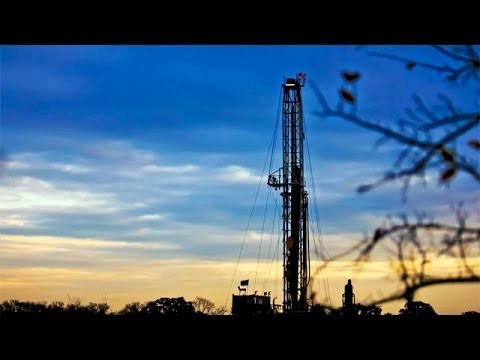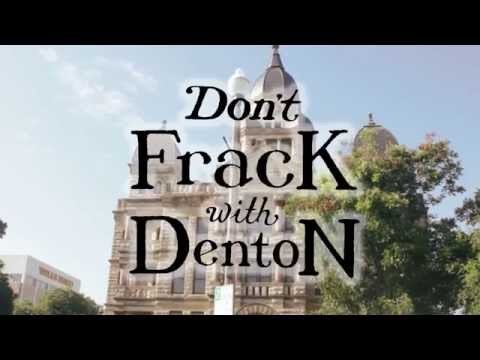Fracking Scorecard 2014 Investor Report Shows Few Energy Companies Willing To Disclose Practices
Post on: 16 Март, 2015 No Comment

With New Focus on Methane Leakage Concerns, Shareholder Assessment Grades 30 Oil & Gas Cos; BHP Billiton in 1st Place for Fracking Disclosure; Exxon and Chevron Near Bottom.
BOSTON, Dec. 11, 2014 /PRNewswire-USNewswire/ — A handful of the 30 largest oil and gas companies engaged in hydraulic fracturing, or ‘fracking’, have improved their standing in an annual investor scorecard analyzing whether companies report their practices and progress in reducing risks of their fracking operations. However, the majority of oil and gas companies continue to receive failing scores, preventing investors from accurately assessing how, or whether, these companies manage key risks of fracking, including use of toxic chemicals, water consumption and water quality, waste management, air emissions, and community impacts
Disclosing the Facts2014:Transparency and Risk in Hydraulic Fracturing Operations, (DTF 2014) was released today by As You Sow, Boston Common Asset Management, Green Century Capital Management, and the Investor Environmental Health Network — a coalition of investment advisory firms and advocacy organizations. The second annual investor scorecard is available online at www.disclosingthefacts.org.
Prompted in part by the DTF 2013 shareholder scorecard and engagements with investors, three oil and gas companies have made notable turnarounds in their 2014 disclosures. BHP Billiton emerged as the highest scoring company and the first to score points on more than half the report’s indicators; it rose from near the bottom of 2013’s rankings to the top this year. Hess, the second-highest scorer, more than doubled its score from 2013 and EQT, the third-highest scorer, more than tripled its score following a shareholder proposal from Green Century last fall.
New in this year’s report is an analysis of how companies are managing methane leakage, a controversial issue due to methane’s significant contribution to global warming – with 86 times more global warming potential than carbon dioxide over a 20-year time frame. Currently, most oil and gas companies fail to disclose their methane leakage, which feeds into investor and public concern that these emissions are poorly managed and contributing significantly to global warming. The report authors seek to improve corporate measurement, management, and transparency on this issue through its addition to the scorecard.
The results of the 2014 DTF show that many energy companies are still largely failing to rigorously disclose the impacts of their hydraulic fracturing operations on communities and the environment, said Richard Liroff, executive director of IEHN. We are encouraged by a handful of companies that have clearly risen to our challenge with the DTF scorecard, but data on key metrics remain largely absent for most companies, making it difficult for investors and the public to assess and compare companies’ performance.
It is encouraging to see some major companies turning the corner on disclosure, but we need to see a bigger commitment, said Danielle Fugere, president of As You Sow. The oil and gas industry’s hydraulic fracturing operations are under intense scrutiny for potential harm to neighboring communities and the environment. It’s difficult to show investors, regulators, or the public that the problems are being avoided or resolved when companies are not transparent about the operational practices they have in place.
Our report found that companies across the industry are relying on sweeping statements and empty assurances that fracking is safe, while still failing to provide the data to demonstrate improved practices, noted Lucia von Reusner, shareholder advocate for Green Century Capital Management. Public controversy about fracking will continue unless companies can prove that they are actively working to reduce toxic chemical use, water consumption, methane leakage, and the other negative impacts of fracking that damage the environment and local communities.
The DTF 2014 report shows that several good practices are becoming more widespread. We see companies using pipelines in place of trucks to move water to fracking sites, replacing diesel fuel with natural gas for rig operations and pressure pumping, committing to not use BTEX chemicals for fracking, and avoiding use of fresh water for fracking. But reporting is still weak on how they address community impacts and negative impacts that may threaten company social license to operate, said Steven Heim, a managing director of Boston Common Asset Management. Absent disclosure, investors have no way of crediting those companies making meaningful efforts to adopt best practices and mitigate their impacts on communities and the environment.

The expanded DTF2014 report benchmarks the public disclosures of 30 oil and gas companies engaged in hydraulic fracturing against investor needs for disclosure of operational impacts and mitigation efforts: Anadarko Petroleum Corp; Apache Corp; BHP Billiton Ltd; BP plc; Cabot Oil & Gas Corp; Carrizo Oil & Gas, Inc.; Chesapeake Energy Corp; Chevron Corp; ConocoPhillips Corp; CONSOL Energy Inc.; Continental Resources, Inc.; Devon Energy Corp; Encana Corp; EOG Resources, Inc.; EQT Corp; Exco Resources, Inc.; Exxon Mobil Corp; Hess Corp; Newfield Exploration Co.; Noble Energy, Inc.; Occidental Petroleum Corp; Penn Virginia Corp; QEP Resources, Inc.; Range Resources Corp; Royal Dutch Shell plc; Southwestern Energy Co.; Talisman Energy, Inc.; Ultra Petroleum Corp; Whiting Petroleum; and WPX Energy Inc.
The scorecard assesses five areas of environmental, social, and governance-related risks: (1) toxic chemicals; (2) water and waste management; (3) air emissions; (4) community impacts; and (5) management accountability. The DTF2014 analysis relies solely on publicly available information that companies disclose on their websites or in financial statements or other reports linked from their websites. The report notes that quantitative disclosure of impacts and best management practices is the primary means by which investors can assess how companies are managing the risks associated with the impacts of their hydraulic fracturing operations on communities and the environment.
The industry most commonly reported on three key performance indicators: use of pipelines to transport water in lieu of diesel trucks to lower air emissions (66 percent); company policies on use of non-potable water for hydraulic fracturing (60 percent); and linkage of executive compensation to health, environment, and safety performance (60 percent). The report notes that companies are least transparent on their process for systematically identifying and addressing operational impacts on local communities, even though unaddressed community concerns are among the leading drivers of bans and moratoria.
Six new oil and gas companies that fall within the top three producers of the major plays were added to the DTF 2014 report: Carrizo Oil & Gas, Inc.; Continental Resources, Inc.; Exco Resources, Inc.; Penn Virginia Corp.; Newfield Exploration Co.; and Whiting Petroleum Corp.
The complete ranking of the 30 companies is as follows:














